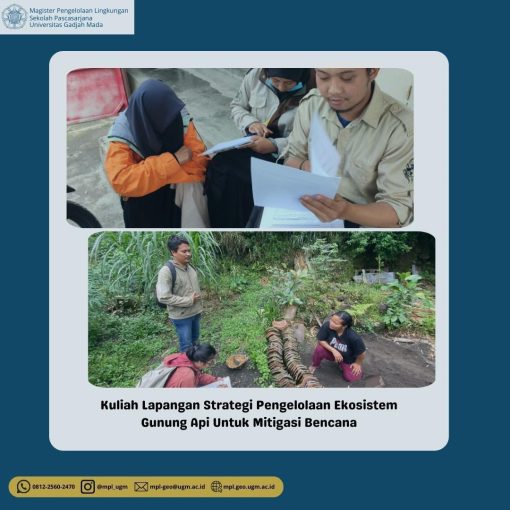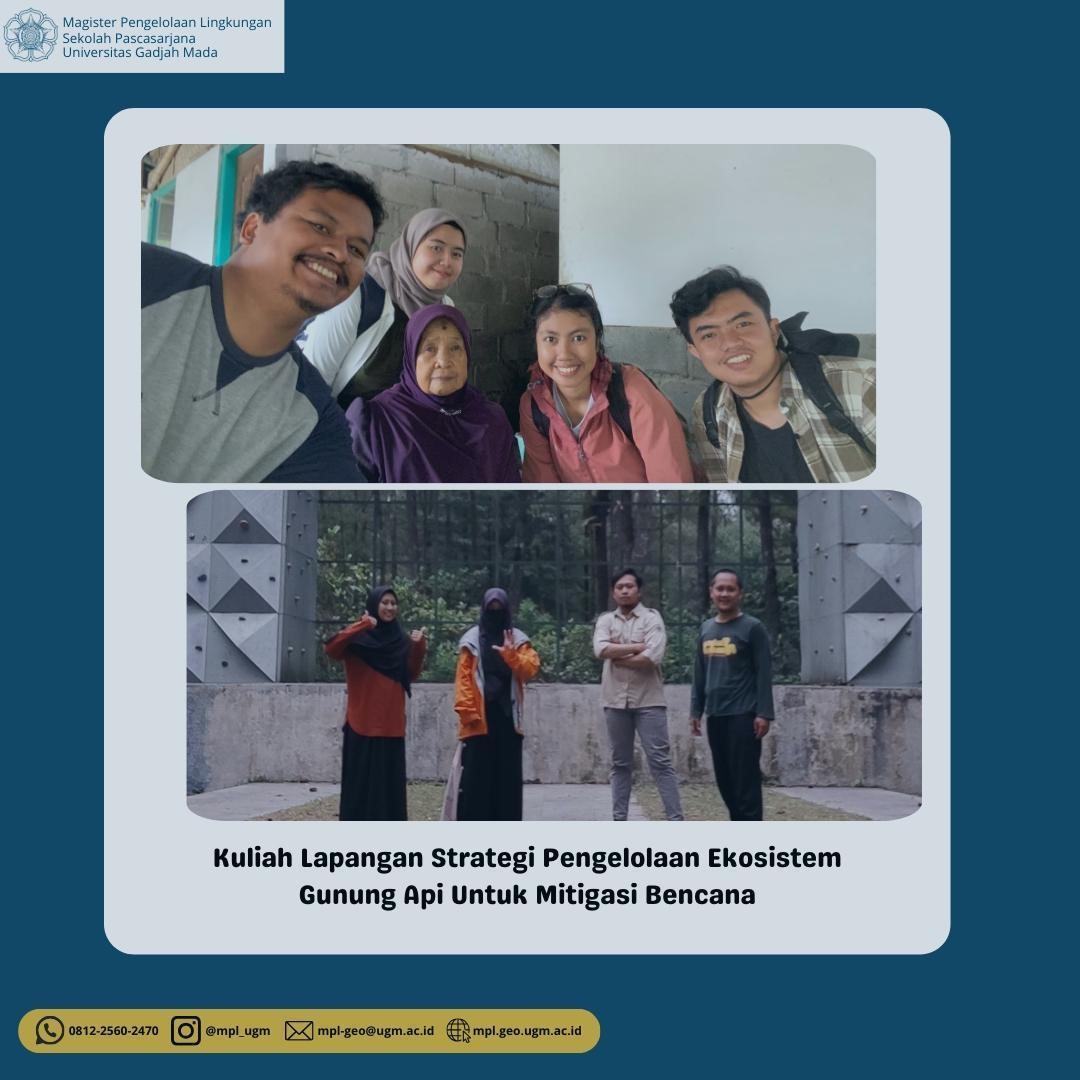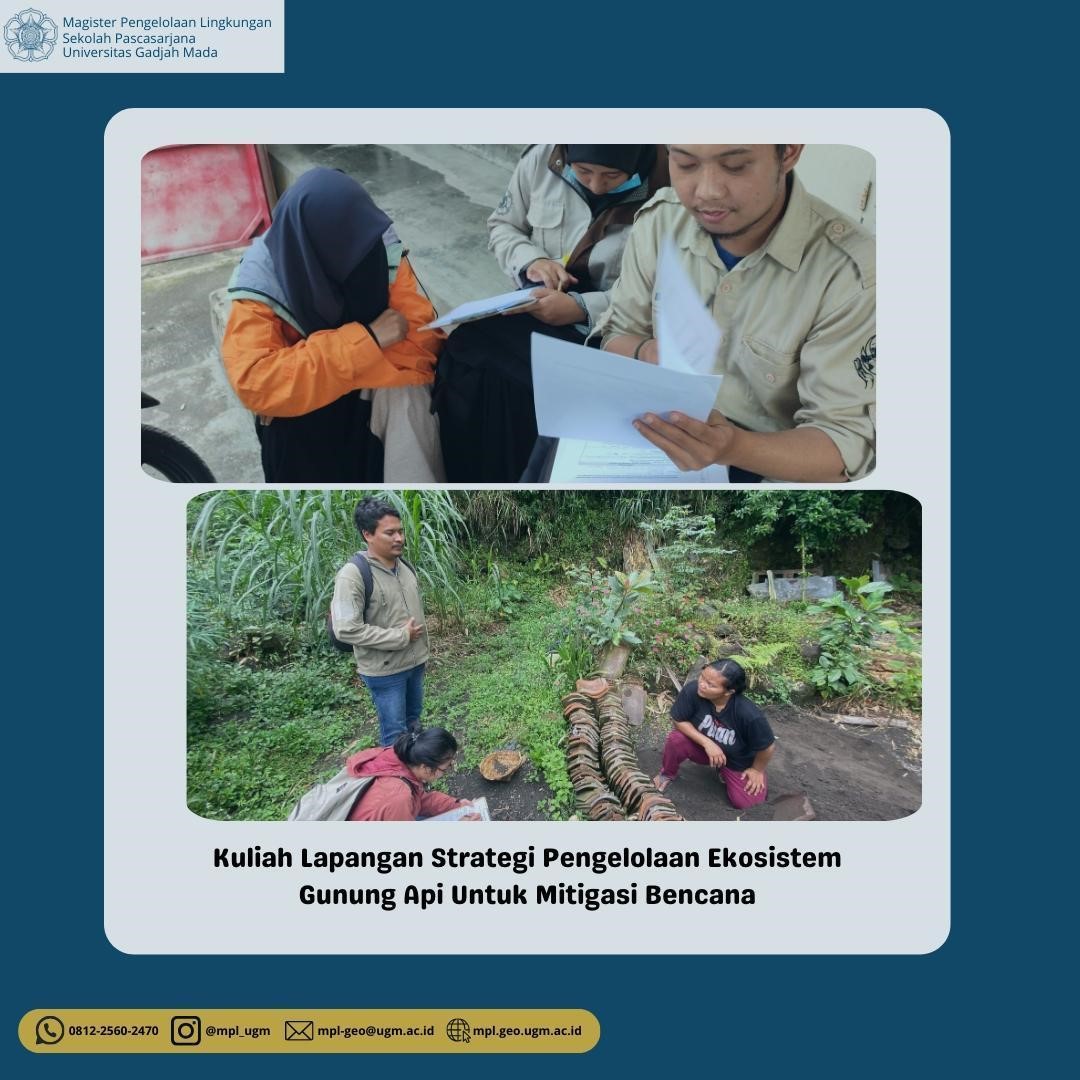
Study Interests Master of Environmental Management (MPL) Gadjah Mada University Postgraduate School carried out field lectures on the Volcano Ecosystem Management subject under the guidance of lecturer Dr. Rika Harini, S.Si., MP. from the Faculty of Geography. The field lecture was attended by 8 MPL students who were divided into 2 (two) groups with different locations, namely Mount Merapi in the Central Java Province and Yogyakarta Special Region, which was held on June 1st 2024.
The background to the implementation of the field lecture chose the topic of volcanic disaster mitigation to provide understanding and increase awareness of the community around the Mount Merapi area, especially the Cangkringan community regarding the impact of volcanic disasters on the lives and economy of the community. The threat of volcanic disasters and community needs that must be met means that communities must integrate with each other to be able to utilize environmental resources while maintaining the balance of the environmental ecosystem. The behavioral patterns of people around volcanoes have a big influence on the balance of the ecosystem.
MPL students conducted interviews with the people of Cangkringan Village to dig deeper into patterns of community behavior towards volcanoes based on the location of residents’ housing which was divided into 3 (three) areas, namely the upper slope, middle slope and lower slope of Mount Merapi. The results of the interviews showed significant differences regarding the impact of volcanic eruptions and evacuations carried out during disasters in each part of the slopes of Mount Merapi.
The activity of Mount Merapi in the Cangkringan area is both an opportunity and a challenge for the people around it. The wealth of natural resources contained therein is a gift to fulfill people’s lives. However, the challenges of Mount Merapi when it erupted caused people to experience conditions that were inevitable, especially when the eruption of Mount Merapi occurred in 2010 which caused huge losses. Post-eruption living conditions refer to various aspects of socio-economic changes and conflicts that occur in society.
Currently, the Cangkringan community has prepared disaster mitigation to face Mount Merapi’s activities with mitigation knowledge and social capital. The equipment that has been provided includes Early Warning System (EWS) facilities, Disaster Preparedness Village Program (KSB), emergency kits, standby vehicles, evacuation routes, and there are 12 refugee barracks with a capacity of 400 people for each barrack.
It is hoped that this field lecture activity will be able to have a positive impact on the community and students regarding disaster mitigation, especially in managing volcanic ecosystems. This is in line with the objectives of the Sustainable Development Goals (SDGs), namely pillar 3 about good health and prosperity, pillar 4 about quality education, and pillar 15 about protecting land ecosystems.
Tags: ecosystem management, volcanoes, SDGs, SDG 3: good health and well-being, SDG 4: quality education, SDG 15: protecting terrestrial ecosystems.
Author: Siti Muyasaroh


